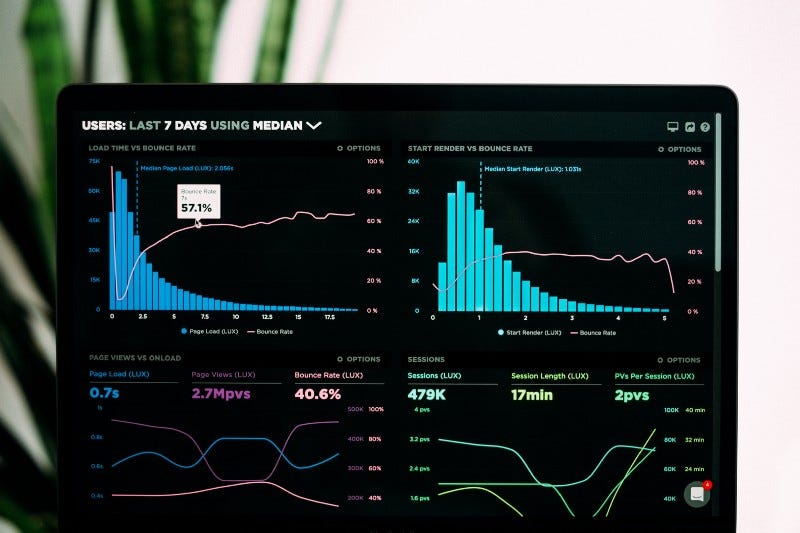How I tripled my salary in 3 years: job hopper Journey in Data Analytics
Practical tips to think about when carving out your own path
Practical tips to think about when carving out your own path

(Notes: All opinions are my own)
Introduction
As a professional with 4 years of experience, this article comes as both a self-reflection on my journey within the data analytics and tech world so far as well as a list of considerations you may find useful if you are just starting out and wondering how you:
can get into the field of data analytics
whether it makes sense, or not, to change jobs, frequently, as I have
what to look out for in your next gig, beyond just salary bumps that usually come with switching jobs
True, the title makes it seem like salary is the catch-all variable and the only one that matters in the equation. You’ll see that it’s not, but I hope my being transparent about my financial journey as well will also help you gain some reference points.
Coming out of university: the realization

ROLE: Naive business student
LOCATION: Milan, Italy
SALARY: 0
I studied business for 5 years (3 years of Bachelor’s Degree and 2 years of Master’s Degree) at a school well-known for Business & Economics studies.
1 of the 5 years was spent doing internships, the first in an Account Management role at an online travel company and the second as an Analyst at a Marketing Analytics consulting company.
The first internship made me realize I liked working with numbers more than talking to people all day on the phone and this led me to take the Analyst role in the second internship.
At the same time, this is the period where I realized my business studies had me prepared for nothing related to the analysis of modeling of data with modern programming languages and tools, and so I knew I had a big gap to fill.
This is when I first started taking online courses in SQL, Python & R programming in order to really build a solid basis through which I could land an entry-level job in analytics, and in parallel, I started mass-applying to jobs I was interested in at the time
TIP 1: Knowing what you don’t want to do is as helpful, if not more helpful, than knowing what to do: try things out; if not for you, adjust your aim and move on
TIP 2: Getting entry-level jobs is a numbers game: don’t be picky and apply in the tens/hundreds
TIP 3: Your university courses will take you there, but you will likely have to fill in some gaps; start learning online and rounding up your knowledge
Year 0-1: Business Analyst in Consulting in the UK

ROLE: Business Analyst
LOCATION: London, UK
SALARY: £35K (no bonus)
During my university years, I spent time studying abroad, and since I thoroughly enjoyed those experiences, I decided to also kick off my professional career outside of my home country.
In Europe, London was (and you may argue still is) one of the most dynamic locations for job opportunities and a variety of industries (though it is very much a financial hub). So I decided to focus my job-seeking efforts there and I was able to land an entry-level role in a back-office/ support department of a big consulting firm.
The role in itself was not something to be ecstatic about, but the move had amazing advantages:
It allowed me to be financially independent from the start
Even though the role was not amazingly exciting, the company was well-known and carried a lot of great opportunities to travel, work with smart people and stamp a useful brand name on my resume
I was now in London! A great new city and life to discover, plus the advantages of being in a much more dynamic job market compared to Italy
The role was remote in the sense that I was in the office all day but working with colleagues based in the USA, so I had time on my hands in the morning to get to know people in other departments (some of them are still great friends to this day), as well as keep racking up Data Analytics and Data Science courses I could then use in my daily job.
After a year, the role got boring, and with little possibility to move internally, I started using my newly found skills to find a more interesting and hands-on role when it came to working with data. And that is how I ended up in my next role.
TIP 1: At the start of your career the world is your oyster: if you have the possibility to look for jobs in other countries with improved job market conditions, take it
TIP 2: When getting into your first job, money should not be the only factor to consider: evaluate what the new location, company , job market have to offer not only in the near term but also in the short-term
TIP 3: Your first gig does not excite you? Use it as a training ground to get you ready for the next one; start investing in knowledge building with online courses
Year 1–2.5: Data Analytics in Consulting

ROLE: Analytics Consultant
LOCATION: London, UK
SALARY: £50K (base) + bonus
After the previous role, I move to an Analytics Consultant position in the Data Science division of a multinational consulting firm. This role was much more catered towards programming with scripting languages such as Python, R, and SQL as well as becoming familiar with cloud computing technologies.
I found the work much more interesting, hands-on, and analytical. What I loved about this role was the continuous focus on learning & development and the opportunities I received to take on challenging roles in the Data Analytics space. To give you some examples:
I worked in the Data Science team for a client looking to develop a digital twin of airport operations (Python-focused)
I developed Business Intelligence dashboards for retail clients (Microsoft Power BI, Tableau)
I was part of a team building proofs-of-concept using Natural Language Processing Python packages for internal survey response analysis (Python)
I had the opportunity to sign up for a learning track to get certified as a Google Cloud Platform Professional Data Engineer by taking these courses (Python, GCP)
I really enjoyed the role and the skills that I obtained in the consulting world. I was not actually looking to leave it but I was approached on LinkedIn with a great opportunity that I did not end up saying any to, as I will elaborate in the next section.
Looking back at this experience, I am so happy I took it, for the salary bump I obtained and the great learning opportunities in the data & AI space.
TIP 1: In the Data Analytics space, impostor syndrome is the norm: embrace it as you are not the only one, and open yourself up to challenging projects
TIP 2: From data engineering, to Business intelligence to avdanced simulations, there are multiple niches within “Analytics”; find yours and conquer it, or dabble in multiple ones until you decide to specialize further
Year 2.5- present: moving into tech
ROLE: Project Manager / Senior Project Manager
LOCATION: London, UK
SALARY: Role 1: £72K (base) + bonus + equity = ~£85K
Role 2 (Promotion after 1.2 years in Role 1): £85K (base) + bonus + equity = ~£100K
After a year and a half in the previous role, I was approached by MongoDB, a database tech company, for a Chief-of-Staff to the CRO position, which I ended up not qualifying for.
At the end of the selection process, one of the other interviewers offered me a different role in a new team he was building from scratch, and so I ended up taking a Project Manager role in an internal operations department supporting the B2B sales team.
I’ve been in this role for 1.5 years now, and it’s been a blast, as both the team I work with and the company are great and have a great work environment, plus multiple opportunities for getting hands-on with different projects spanning multiple sides of the organization.
From a certain angle, I moved away from a strictly technical data role by taking a PM role, but the projects I work on are still very much software and data-focused projects, so I am never too far from where I started and I can tell my past experience in the previous two roles, coupled with the heavy investment in online learning I’ve documented on my Medium profile, has been very useful to me thus far.
Overall, the financial rewards have also been great, as I was able to secure a 3X improvement over my role when just starting out of university.
The journey has been great so far, and I can’t wait to see what comes next! I’m really happy in my current role and I look forward to accumulating more experience and learnings as I continue my adventure at MongoDB
TIP 1: Financial rewards from job hopping are great when one is young into a career: i’ve followed my guts, interests and algorithmic advice when making these changes, and you can/should to especially as you are most flexible
TIP 2: There is no “right path” to step out of, only the one you are building for yourself
TIP 3: Keep learning and keep options open — not all movements are upwards: you can prioritize financial gain, or more time at different stages in your career; whatever your do, don’t follow the herd
In summary
My story is a story, not the right story; I hope this will help you as a young professional looking to start a career in data and beyond.
As always, thanks for reading!
Access my free Data Science resource checklist here
Join Medium with my referral link — Edoardo Romani
As a Medium member, a portion of your membership fee goes to writers you read, and you get full access to every story…edo-romani1.medium.com


